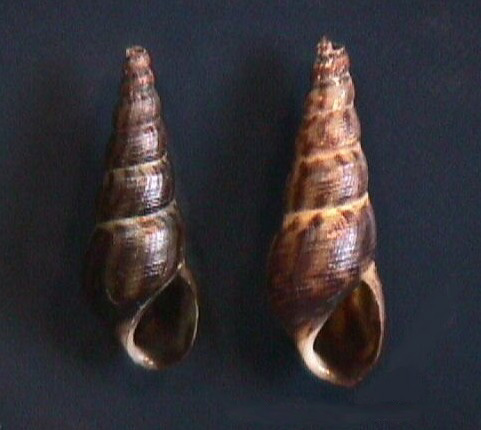JSU Biologist Receives Grant to Study Invasive Florida Snail
08/12/2016

by Katie Cline
Lori Tolley-Jordan, an assistant professor of biology at Jacksonville State University, has been awarded a $25,000 grant from the U.S. Fish and Wildlife Service to study an invasive snail species in Florida waters.
Tolley-Jordan, who is referred to as “Dr. TJ” by her students and colleagues, will partner with Michael Chadwick of Kings College in London and Jessica Wooten of Centre College in Danville, Ky. to study the Asian red-rimmed melania snail. This species of snail is what biologists refer to as “invasive,” “non-native” or “introduced,” because it migrated to America from another place – in this case, from Southeast Asia. Invasive species have a reputation for being dangerous to humans or native plants and animals. Snails, however, don’t seem to be a particularly fierce creature.
“Many invasive species are not ‘dangerous’ or harmful to people directly,” explained Tolley-Jordan, “but oftentimes an invasive species can really reek havoc on an ecosystem as they compete with other native species, disrupt food availability for other species, bring in pathogens that make other species sick, or all of the above. In the case of the red-rimmed melania, this snail is host to about 50 different flatworm parasite species, including several human pathogens.”
The red-rimmed melania is a warm-water species that has flourished in the tropical waters of Florida, possibly due to the accidental or intentional introduction of these snails into waterways through aquarium dumpings.
“They are very common now in Florida waters,” said Tolley-Jordan. “Interestingly, it only takes one snail to establish a population, as they are female clonal. We very much stress to the public to not dump aquaria into waterways.”
Tolley-Jordan and Chadwick will travel to Florida for two weeks in September to collect specimens from freshwater bodies of water and ditches along the state’s east and west coasts. They will travel from Tampa to Miami before ending up in Jacksonville, Fla. They will study the species’ distribution as well as whether certain habitats support the growth of dangerous parasites. The individual snails and any parasites they harbor will be frozen and sent to Wooten in Kentucky, where she and two Centre College students will conduct genetic analysis on the specimens.
Tolley-Jordan and her colleagues hope to determine if habitat plays a role in the snails developing harmful parasites, determine the exact parasites that infect Florida red-rimmed melania and determine whether the influx of the snails in Florida is due to natural dispersion or human disturbance. The team will then create a pamphlet that can be distributed by state and federal agencies to the public at state and national parks and areas with water access. This pamphlet will warn residents and visitors about potential dangers of exposing themselves or their pets to infected water sources.
Tolley-Jordan is an aquatic ecologist from Texarkana, TX who has been at JSU since January 2011. She holds a bachelor’s degree in biology from the University of Arkansas, a master’s in biology from Texas State University and a Ph.D. in biology with a concentration in aquatic biology from the University of Alabama.

